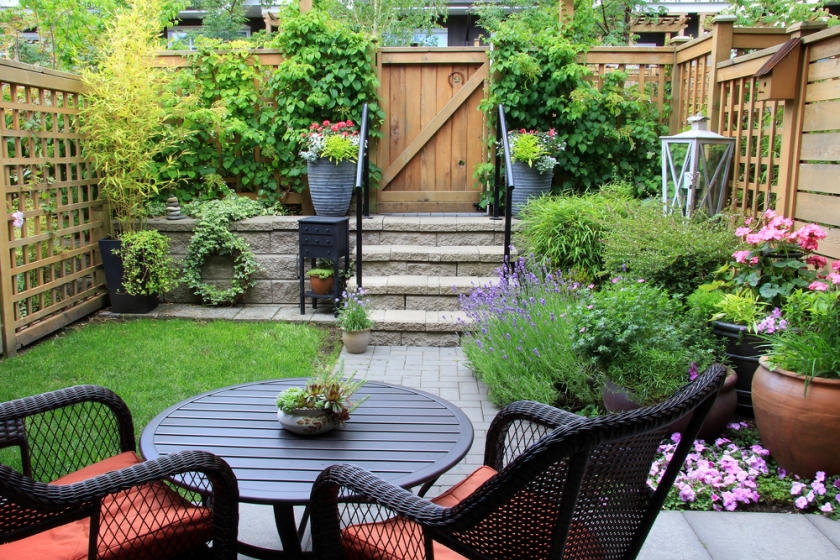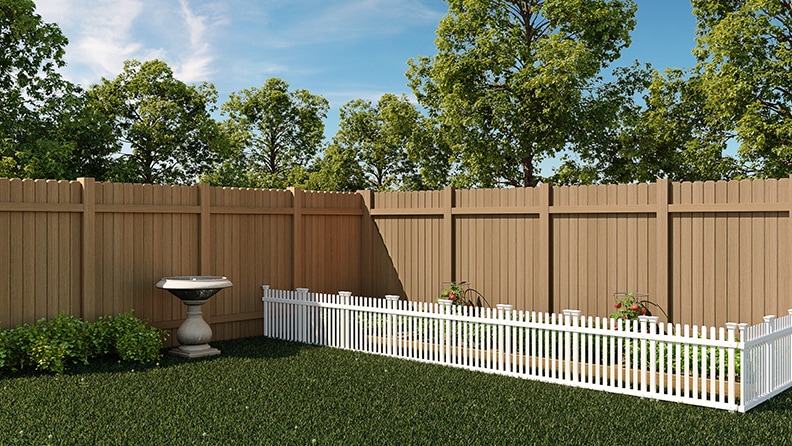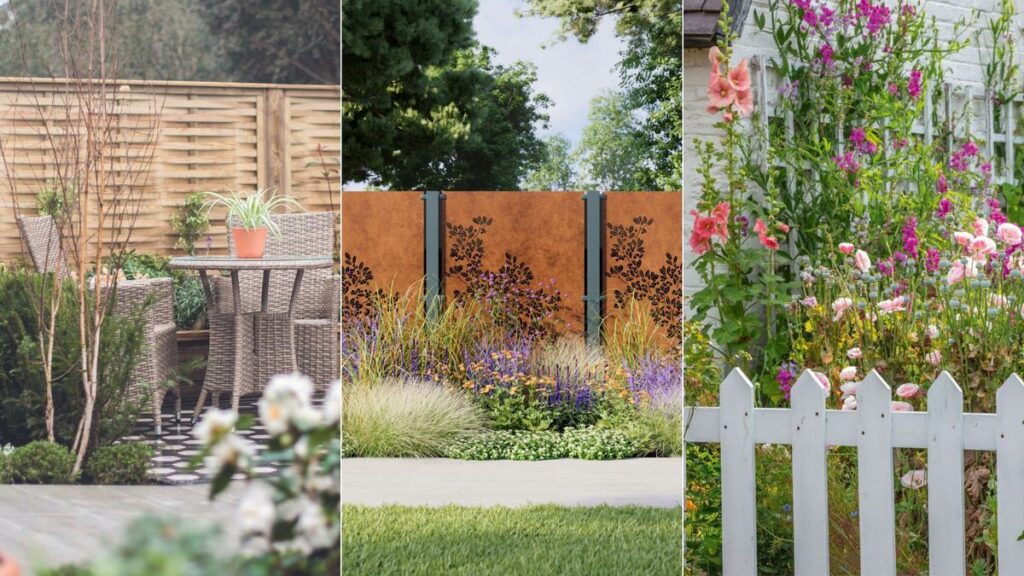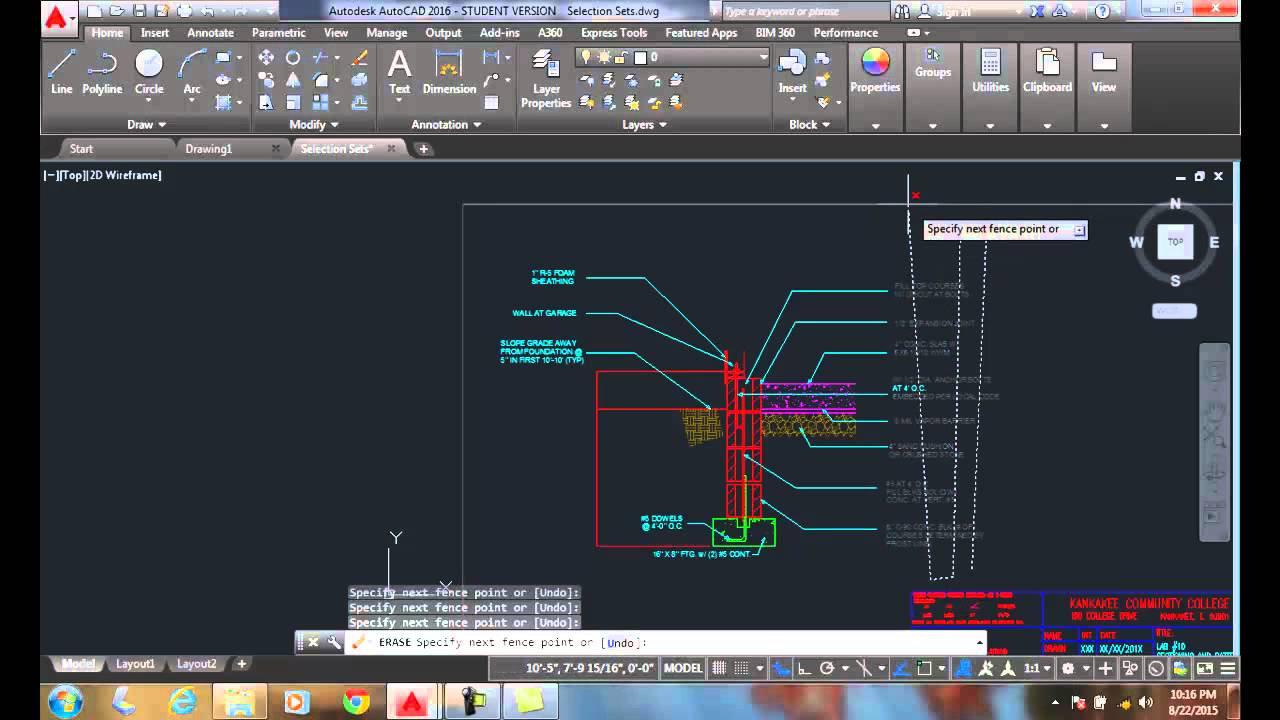Looking to enhance your small garden space with a new fence? Look no further! In this article, we will explore the world of fences, providing you with comprehensive information and practical advice on choosing the perfect fence for your needs. From different types, sizes, and shapes to materials and their suitability for specific purposes, we’ve got you covered. Whether you’re aiming to enhance privacy, ensure security, enclose a backyard, or simply add decorative elements to your property, we’ll guide you through the intricacies of fence selection. Get ready to make informed decisions and transform your garden into an oasis of beauty and functionality.
Types of Fences
When it comes to selecting a fence for your small garden space, there are numerous options to consider. Each type of fence offers unique characteristics, advantages, and drawbacks, making it important to assess your specific needs and requirements. In this article, we will explore a variety of fence types, including wooden fences, chain-link fences, vinyl fences, metal fences, composite fences, bamboo fences, wrought iron fences, privacy fences, picket fences, and farm fences. By examining the characteristics, pros and cons, and suitability for small gardens of each type, you can make an informed decision that aligns with your preferences and objectives.

Wooden Fences
Wooden fences are a classic and versatile option for adding charm and privacy to your small garden space. They are available in various styles and can be customized to suit your aesthetic preferences. The natural beauty of wood enhances the overall appeal of your garden, creating a warm and inviting atmosphere. However, wooden fences do require regular maintenance to prevent rot and decay. Popular wood options for fences include cedar, pine, and redwood.
Pros:
- Versatile and customizable designs
- Adds a warm and natural look to your garden
- Provides privacy
Cons:
- Requires regular maintenance
- May be susceptible to rot and decay in certain climates
Suitability for Small Gardens: Wooden fences are suitable for small gardens due to their ability to create a cozy and intimate space. They can be designed to fit any size or shape, making it easy to enclose your garden while maintaining a visually appealing aesthetic.
Chain-Link Fences
Chain-link fences are a practical and cost-effective option for small garden spaces. They are known for their durability and low maintenance requirements. Chain-link fences consist of a woven wire mesh that allows airflow and visibility, making them an ideal choice if you want to maintain an open and inviting atmosphere in your garden. While chain-link fences may not offer as much privacy as other types, their functionality and affordability make them popular among homeowners.
Pros:
- Durable and low maintenance
- Cost-effective
- Offers visibility and airflow
Cons:
- Limited privacy
- May not be suitable for certain aesthetic preferences
Suitability for Small Gardens: Chain-link fences are suitable for small gardens due to their ability to create a boundary without obstructing the view. They are an excellent choice if you want to maintain visibility and airflow in your garden while still having a secure enclosure.
Vinyl Fences
Vinyl fences have gained popularity in recent years due to their durability and low maintenance requirements. They are made from PVC (polyvinyl chloride) and are available in a variety of styles, colors, and textures to suit different preferences. Vinyl fences are resistant to rot, fading, and warping, making them a long-lasting option for your small garden. They are also easy to clean and do not require painting or staining.
Pros:
- Durable and long-lasting
- Low maintenance
- Resistant to rot and fading
- Wide variety of styles and colors available
Cons:
- Higher initial cost compared to some other fence types
- Limited customization options
Suitability for Small Gardens: Vinyl fences are suitable for small gardens because of their low maintenance requirements and ability to provide long-lasting protection. They offer a clean and modern aesthetic, making them a popular choice for homeowners looking for a hassle-free fence option.
Metal Fences
Metal fences, such as aluminum or steel fences, are known for their strength, durability, and security. They are resistant to weather conditions and do not require excessive maintenance. Metal fences come in a variety of designs, from ornate and decorative to simple and modern. They can be customized to fit any size or shape, making them suitable for small gardens.
Pros:
- Strong and durable
- Low maintenance
- Provides security
- Customizable designs
Cons:
- May be more expensive compared to other fence types
- Can be prone to rust in certain environments
Suitability for Small Gardens: Metal fences are suitable for small gardens due to their ability to provide security and durability without compromising on aesthetics. They can be designed to match various architectural styles, making them an effective and stylish option for your garden.

Composite Fences
Composite fences are a blend of wood fibers and recycled plastic, offering the best of both worlds in terms of aesthetics and durability. They mimic the appearance of wood while providing the low maintenance benefits of plastic. Composite fences are resistant to rot, decay, and insect damage, making them a long-lasting option for your small garden. They are available in various colors and styles to suit your preferences.
Pros:
- Low maintenance
- Resistant to rot, decay, and insect damage
- Available in a variety of colors and styles
Cons:
- Higher initial cost compared to some other fence types
- May experience fading over time
Suitability for Small Gardens: Composite fences are suitable for small gardens due to their low maintenance requirements and durability. They offer the appearance of wood without the drawbacks, making them an attractive and practical option for your garden.
Bamboo Fences
Bamboo fences are an eco-friendly and aesthetically pleasing option for adding privacy and a tropical vibe to your small garden. Bamboo is a renewable resource and grows quickly, making it a sustainable choice. Bamboo fences are available in different heights and styles, allowing you to create a unique and natural look.
Pros:
- Eco-friendly and sustainable
- Adds a tropical and natural aesthetic to your garden
- Offers privacy
Cons:
- Requires maintenance to prevent weathering and fading
- May be prone to damage by pests or rot in certain climates
Suitability for Small Gardens: Bamboo fences are suitable for small gardens due to their ability to create a peaceful and serene atmosphere. They can be easily installed and provide privacy without sacrificing the beauty of your garden.

Wrought Iron Fences
Wrought iron fences are known for their timeless beauty and elegance. They are made of iron that has been heated and bent into decorative designs. Wrought iron fences are highly durable, resistant to weather conditions, and offer excellent security. They are available in various intricate designs and can be customized to fit any garden size or shape.
Pros:
- Timeless beauty and elegance
- Durable and weather-resistant
- Provides security
Cons:
- Requires regular maintenance to prevent rust
- May be more expensive compared to other fence types
Suitability for Small Gardens: Wrought iron fences are suitable for small gardens as they add a touch of sophistication and can be designed to match the architectural style of your property. They create a visually appealing enclosure while providing security and durability.
Privacy Fences
Privacy fences are designed to provide seclusion and block the view from outside. They typically have little to no spacing between the boards or panels, ensuring privacy within your small garden. Privacy fences are available in various materials, such as wood, vinyl, composite, or metal, allowing you to choose the option that best suits your preferences.
Pros:
- Ensures privacy
- Can be created with various materials
- May offer noise reduction
Cons:
- May block airflow and visibility
- Can create a closed-off feeling in the garden
Suitability for Small Gardens: Privacy fences are suitable for small gardens if you value privacy and want to create an intimate outdoor space. They can help block out unwanted views and noise, allowing you to enjoy your garden in peace.

Picket Fences
Picket fences are an iconic and charming choice for small gardens. They consist of evenly spaced vertical boards, often with a decorative design on the top. Picket fences are available in different heights, allowing you to choose the level of enclosure you desire. They are typically made of wood, but can also be found in vinyl or metal options.
Pros:
- Classic and charming aesthetic
- Allows airflow and visibility
- Wide variety of designs and heights
Cons:
- May not provide complete privacy
- Requires regular maintenance
Suitability for Small Gardens: Picket fences are suitable for small gardens if you want to create a welcoming and traditional look. They allow airflow and visibility while providing a clear boundary for your garden space.
Farm Fences
Farm fences, such as split rail or post and rail fences, are rustic and functional options for small gardens. They are typically made of wood and consist of horizontal rails supported by posts. Farm fences offer a classic and natural look, making them suitable for country-style or cottage gardens.
Pros:
- Rustic and natural appearance
- Provides a clear boundary
- Allows airflow
Cons:
- May not provide complete privacy
- Requires regular maintenance
Suitability for Small Gardens: Farm fences are suitable for small gardens with a rustic or country-style aesthetic. They enhance the charm of your garden while offering functionality and a clear boundary.
Considerations for Choosing a Fence
Choosing the right fence for your small garden involves considering various factors to ensure that it meets your specific needs and requirements. By evaluating the purpose of the fence, your budget, maintenance requirements, durability, aesthetic appeal, local regulations and zoning laws, neighborhood considerations, climatic factors, security and privacy needs, as well as the property size and shape, you can make an informed decision. Let’s delve into each of these considerations to help you choose the perfect fence for your small garden.
:max_bytes(150000):strip_icc()/ways-to-create-a-more-relaxing-backyard-4121173-hero-6ae7a932f01648a09b8624ba04565301.jpg)
Purpose of the Fence
Before selecting a fence for your small garden, it is crucial to determine its purpose. Identifying why you need a fence will guide your decision-making process and ensure that you choose the most suitable type for your specific requirements. Here are some common purposes for installing a fence:
-
Enhancing Privacy: If privacy is a top priority for you, consider fences with no spacing between the boards, such as privacy fences or bamboo fences. These types of fences will create a secluded atmosphere in your garden.
-
Security Considerations: Fences can provide an additional layer of security to your property. Metal fences, such as chain-link fences or wrought iron fences, offer durability and strength to deter trespassers.
-
Enclosing a Backyard: If your main goal is to enclose your backyard, a variety of fence types can be suitable. Consider the level of enclosure you desire, as picket fences or farm fences may offer a more open design compared to privacy fences.
-
Creating a Visual Barrier: Fences can be used to separate different areas within your garden or create a visual barrier between your garden and other areas of your property, such as a driveway or a pool area. Consider fences with appropriate height and design to achieve the desired visual separation.
-
Providing Safety for Pets: If you have pets, installing a fence can create a secure area for them to roam freely without the risk of escaping or encountering potential hazards outside your garden.
-
Adding Decorative Elements: Some homeowners choose to install fences solely for decorative purposes. Fences, such as wrought iron fences or picket fences, can add beauty and elegance to your small garden.
By identifying the primary purpose of your fence, you can narrow down your options and choose a fence that best fulfills your needs.
Budget
Considering your budget is an essential aspect of choosing a fence for your small garden. Fences vary in cost depending on the materials used, the design complexity, and the required installation. Set a budget that aligns with your financial capabilities and explore fence options within that range.
Wooden fences, such as those made of cedar or pine, are generally more affordable compared to vinyl or metal fences. Chain-link fences also offer cost-effective options. On the other hand, fences made of wrought iron or composite materials may have a higher initial cost but offer long-term durability and low maintenance requirements.
When determining your budget, keep in mind any additional costs, such as gate installation or fence staining. It’s important to strike a balance between cost and quality to ensure you choose a fence that meets your requirements without exceeding your financial limitations.
Maintenance Requirements
Understanding the maintenance requirements of different fence types is vital to ensure you can keep your fence in good condition over time. Some fences may require regular upkeep and periodic treatments, while others may be virtually maintenance-free.
Wooden fences, for example, typically require staining or painting every few years to maintain their appearance and protect them from weathering. Chain-link fences and vinyl fences, on the other hand, have minimal maintenance requirements, usually limited to occasional cleaning or repairs.
Consider the amount of time and effort you are willing to invest in maintaining your fence. If you prefer a hassle-free option, vinyl or metal fences may be suitable, while wood fences require more regular attention to keep them looking their best.
Durability
The durability of a fence is a crucial consideration, as you want it to withstand the test of time and various weather conditions. The lifespan of a fence can vary depending on the materials it is made of and its exposure to elements such as sunlight, wind, and moisture.
Wooden fences, although charming and versatile, may require more maintenance and have a limited lifespan compared to vinyl or metal fences. Vinyl fences are known for their durability and resistance to rot, fading, and warping. Metal fences, especially those made of aluminum or steel, are highly durable and can withstand harsh weather conditions.
Consider the climate in your area and the specific challenges your fence may face, such as high winds or heavy rain. Choosing a fence with appropriate durability will ensure that it remains sturdy and attractive for years to come.
Aesthetic Appeal
The aesthetic appeal of your fence plays a significant role in enhancing the overall look of your small garden. Consider the architectural style of your property and the desired atmosphere you want to create.
Wooden fences offer a natural and warm look that complements various garden styles. They are versatile and can be customized to match your preferences. Vinyl fences come in various colors and styles, allowing you to choose an aesthetic that best suits your garden. Metal fences offer both a modern and classic look, depending on the design you choose.
Additionally, consider how your fence will blend with the rest of your garden elements, such as landscaping, outdoor furniture, or the color scheme. The fence should harmonize with the overall design and contribute to the desired atmosphere.
Local Regulations and Zoning Laws
Before installing a fence in your small garden, it’s crucial to consult local regulations and zoning laws. Many municipalities have specific requirements regarding the height, design, and placement of fences. These regulations aim to maintain a cohesive look within the neighborhood and ensure that fences do not pose safety hazards or obstruct visibility.
Check with your local municipal office or homeowner’s association to obtain the necessary information and guidelines. You may need to apply for a permit or adhere to certain restrictions, such as setback requirements or limitations on fence heights.
By familiarizing yourself with the local regulations, you can choose a fence that complies with the rules and avoids any potential legal issues.
Neighborhood Considerations
When selecting a fence for your small garden, it’s important to consider the neighborhood aesthetic and the fences used by your neighbors. While you may want your fence to reflect your personal taste, it should also harmonize with the surrounding properties to create a cohesive and visually appealing neighborhood.
Take note of the common fence types in your neighborhood and the materials used. While unique fence designs can add character to your small garden, choosing a completely different style or material may create a visual disconnect.
It’s also essential to communicate with your neighbors if you plan to install a fence that may affect their view or access to certain areas. Open communication can help maintain good relationships and ensure that your fence installation is considerate of your neighbors’ preferences as well.
Climatic Factors
The climate in your area plays a significant role in the durability and maintenance requirements of your fence. Consider the weather conditions, such as temperature extremes, humidity, rainfall, or exposure to saltwater if you live near the coast.
Certain fence materials may be better suited for specific climates. For example, vinyl fences are highly resistant to weathering and durable in various climates. Wood fences may require more maintenance in areas with high humidity or heavy rainfall, as they may be prone to rot or insect damage.
Understanding the impact of climatic factors on your fence will help you choose a material that can withstand the challenges presented by your local climate.
Security and Privacy Needs
Security and privacy considerations are essential factors when choosing a fence for your small garden. Evaluate the level of security or privacy you desire and select a fence that meets those requirements.
Privacy fences, such as those with no spacing between the boards, are optimal for creating a secluded and private garden space. Bamboo fences can also provide privacy while adding a natural and tropical aesthetic.
If security is a priority, consider fences with a higher level of sturdiness and limited access points. Metal fences, such as chain-link fences or wrought iron fences, can provide both security and visibility. Some fence options, such as picket fences or farm fences, may have a more open design but can still deter unauthorized access.
Property Size and Shape
The size and shape of your property play a crucial role in determining the appropriate fence dimensions and design. Consider the following factors when selecting a fence for your small garden:
Measuring the Garden Area:
Measure the area where you plan to install the fence. Accurate measurements will help you determine the amount of material required and ensure a proper fit.
Determining Fence Length:
Based on your measurements, calculate the length of the fence panels or boards needed to enclose your garden. This will help you estimate the overall cost and determine if any customization is required for a perfect fit.
Accommodating Irregular or Sloped Terrain:
If your garden has irregular or sloped terrain, you’ll need to choose a fence style that can be adjusted to accommodate these variations. Fences with individual pickets or panels, such as picket fences or vinyl fences, offer flexibility in installation.
Creating Visual Illusions for Small Gardens:
The design of your fence can influence the perception of your garden’s size. For example, installing a fence with horizontal slats can create the illusion of a longer or wider garden. Vertical fence designs may lend a sense of height to a small garden. Consider using these visual illusions to enhance the overall look and feel of your small garden space.
By considering the size and shape of your property, you can choose a fence that fits well and complements the overall layout of your garden.
After considering these various factors, you’ll be equipped with the necessary information to select the perfect fence for your small garden. Remember that the “right” fence will depend on your unique preferences, needs, and local requirements.
Now, let’s address some commonly asked questions about fences:
Fence FAQs
-
Q: Can I install a fence myself, or should I hire a professional?
- A: It depends on your level of experience and the complexity of the fence installation. Some fences can be installed by homeowners with basic DIY skills, while others may require professional assistance for accurate and secure installation.
-
Q: How can I determine the property boundaries when installing a fence?
- A: It is crucial to consult your property survey or hire a land surveyor to identify property boundaries accurately. This will help ensure that your fence is installed within your property lines and does not encroach on your neighbor’s property.
-
Q: Do I need a permit to install a fence?
- A: The need for a permit varies depending on local regulations and zoning laws. Contact your local municipal office or homeowner’s association to determine if a permit is required for your fence installation.
-
Q: How high can my fence be?
- A: Fence height restrictions are determined by local regulations. Generally, backyard fences are allowed to be taller than front yard fences. Check with your local authorities to confirm the permitted height for your specific area.
-
Q: How often should I clean or maintain my fence?
- A: This depends on the fence type and material. Wooden fences may require staining or painting every few years, while chain-link fences or vinyl fences can be cleaned periodically with a garden hose or mild detergent.
-
Q: How do I prevent my wood fence from rotting?
- A: Regular maintenance is key to preventing wood fence rot. Apply a waterproof sealant or stain regularly to protect the wood from moisture and decay. Additionally, ensure that the fence posts are installed properly and have proper drainage.
-
Q: Can I install a fence on a slope?
- A: Yes, many fence types can be installed on a slope. Fence panels or boards can be adjusted to follow the contour of the land. In some cases, you may need to step the fence panels or use rackable panels that can adapt to changes in slope.
-
Q: How long does a fence typically last?
- A: The lifespan of a fence depends on various factors, including the materials used, maintenance, and weather conditions. Vinyl and metal fences are known for their durability and can last for several decades, while wooden fences may require more upkeep and have a shorter lifespan.
-
Q: Can I paint or stain my vinyl fence?
- A: Most vinyl fences do not require painting or staining, as they are available in various colors. However, if you wish to change the color or refresh the appearance of your vinyl fence, some manufacturers offer paintable or stainable options.
-
Q: Are there any eco-friendly fence options available?
- A: Yes, there are eco-friendly fence options. Bamboo fences are a sustainable choice, as bamboo is a rapidly renewable resource. Additionally, composite fences are often made from recycled materials, such as wood fibers and plastic.
With these common questions addressed, you now have a comprehensive understanding of different fence types, as well as the factors to consider when selecting a fence for your small garden. By making an informed decision and choosing the right fence, you can enhance the privacy, security, and aesthetic appeal of your outdoor space.
